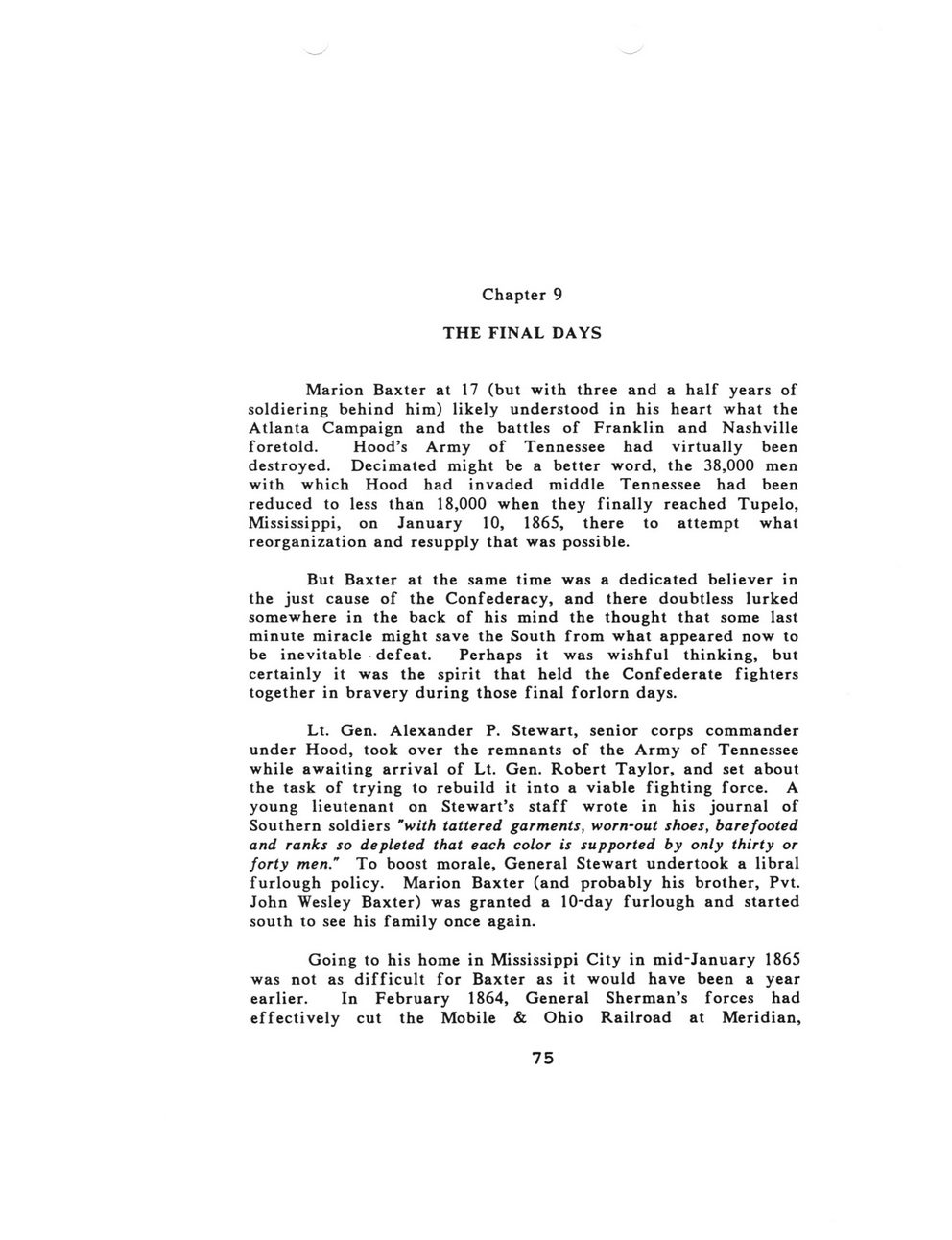This text was obtained via automated optical character recognition.
It has not been edited and may therefore contain several errors.
Chapter 9 THE FINAL DAYS Marion Baxter at 17 (but with three and a half years of soldiering behind him) likely understood in his heart what the Atlanta Campaign and the battles of Franklin and Nashville foretold. Hood?s Army of Tennessee had virtually been destroyed. Decimated might be a better word, the 38,000 men with which Hood had invaded middle Tennessee had been reduced to less than 18,000 when they finally reached Tupelo, Mississippi, on January 10, 1865, there to attempt what reorganization and resupply that was possible. But Baxter at the same time was a dedicated believer in the just cause of the Confederacy, and there doubtless lurked somewhere in the back of his mind the thought that some last minute miracle might save the South from what appeared now to be inevitable defeat. Perhaps it was wishful thinking, but certainly it was the spirit that held the Confederate fighters together in bravery during those final forlorn days. Lt. Gen. Alexander P. Stewart, senior corps commander under Hood, took over the remnants of the Army of Tennessee while awaiting arrival of Lt. Gen. Robert Taylor, and set about the task of trying to rebuild it into a viable fighting force. A young lieutenant on Stewart?s staff wrote in his journal of Southern soldiers "with tattered garments, worn-out shoes, barefooted and ranks so depleted that each color is supported by only thirty or forty men." To boost morale, General Stewart undertook a libral furlough policy. Marion Baxter (and probably his brother, Pvt. John Wesley Baxter) was granted a 10-day furlough and started south to see his family once again. Going to his home in Mississippi City in mid-January 1865 was not as difficult for Baxter as it would have been a year earlier. In February 1864, General Sherman?s forces had effectively cut the Mobile & Ohio Railroad at Meridian, 75

Baxter, Marion Francis Marion-Francis-Baxter-Bio.-075